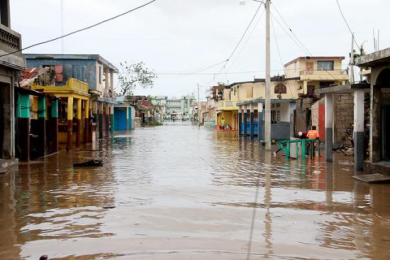The International Federation of Red Cross and Red Crescent Societies (IFRC) - the world's largest humanitarian organization - released a report estimating the growth of humanitarian need if current human activities continue. Published this month, "The Cost of Doing Nothing" paints a bleak picture of global need for humanitarian assistance doubling to 200 million. The price tag, the report projects, could come to $20 billion annually.
The report is a collaboration between IFRC and leading environmental scientists and economists and takes into account global growth rates, inequality, demographics and climate. The IFRC cautions that inaction now will result in the need for a massive increase in humanitarian aid to combat climate-related disasters and their socioeconomic impact. Key findings of the report show that current human activities will lead to escalating suffering and ballooning costs. The report also warns that its dire findings are likely underestimates as it does not factor in how climate change may affect “drivers of conflicts, or the potential future impacts and costs of epidemics or heat waves”.
The IFRC does, however, provide some positive news. The recent publication says that by combating greenhouse gasses and deforestation and implementing new humanitarian aid programs now, the global number in need could reduce from current levels of 108 million to as low as 10 million people by 2050. As a more extreme and unstable climate emerges, inclusive and climate-change conscious humanitarian programs need to be implemented immediately, the IFRC states. The report says that without these urgent actions we will face a rise in human tragedy and the high costs that come along with it.

